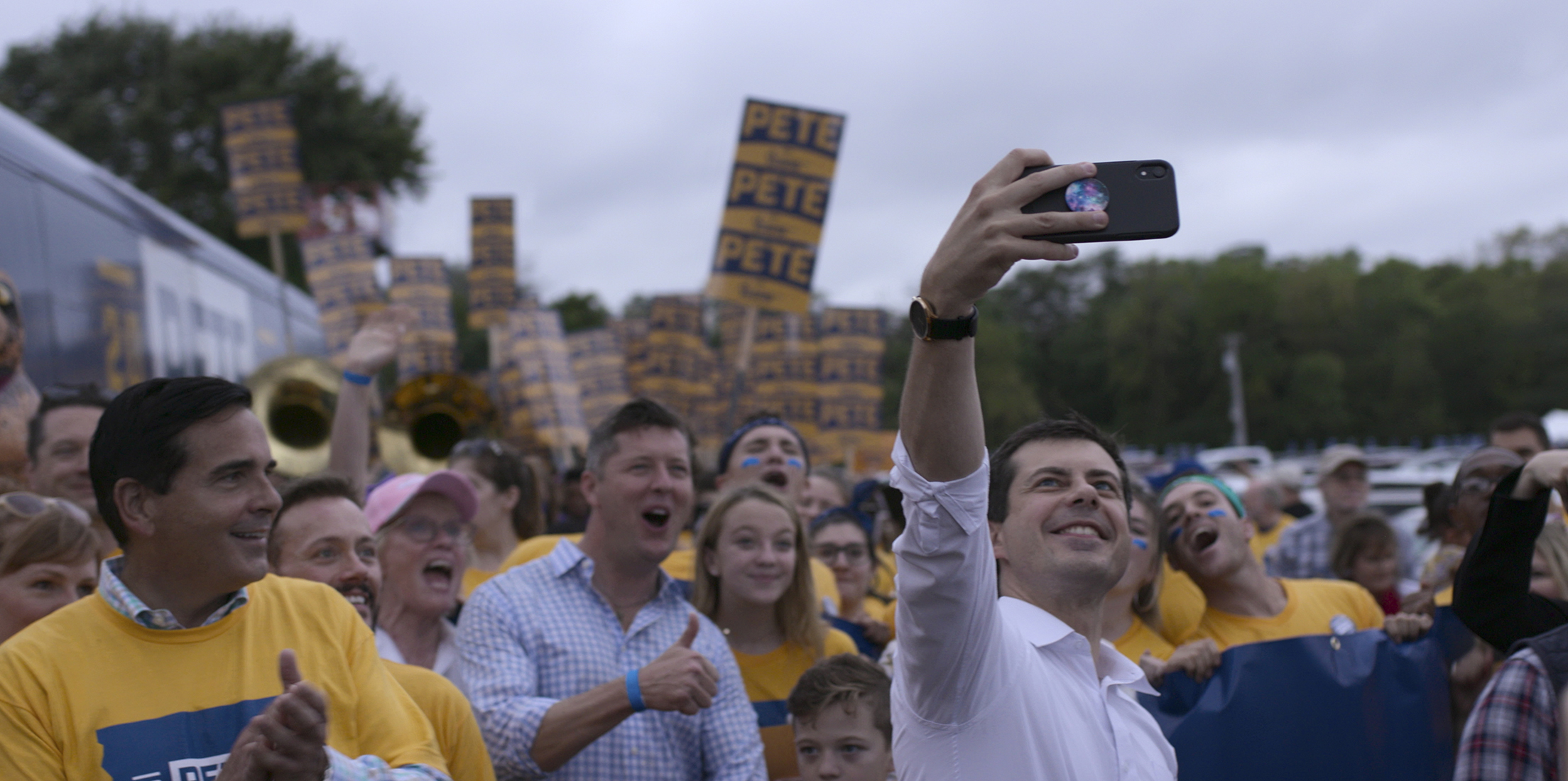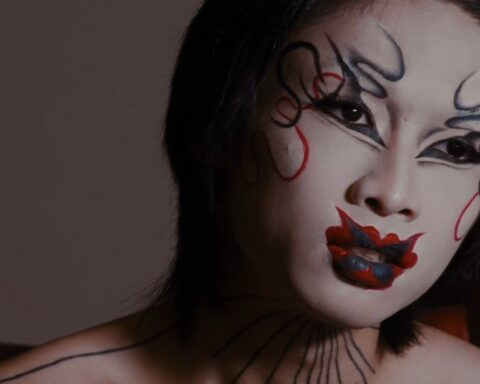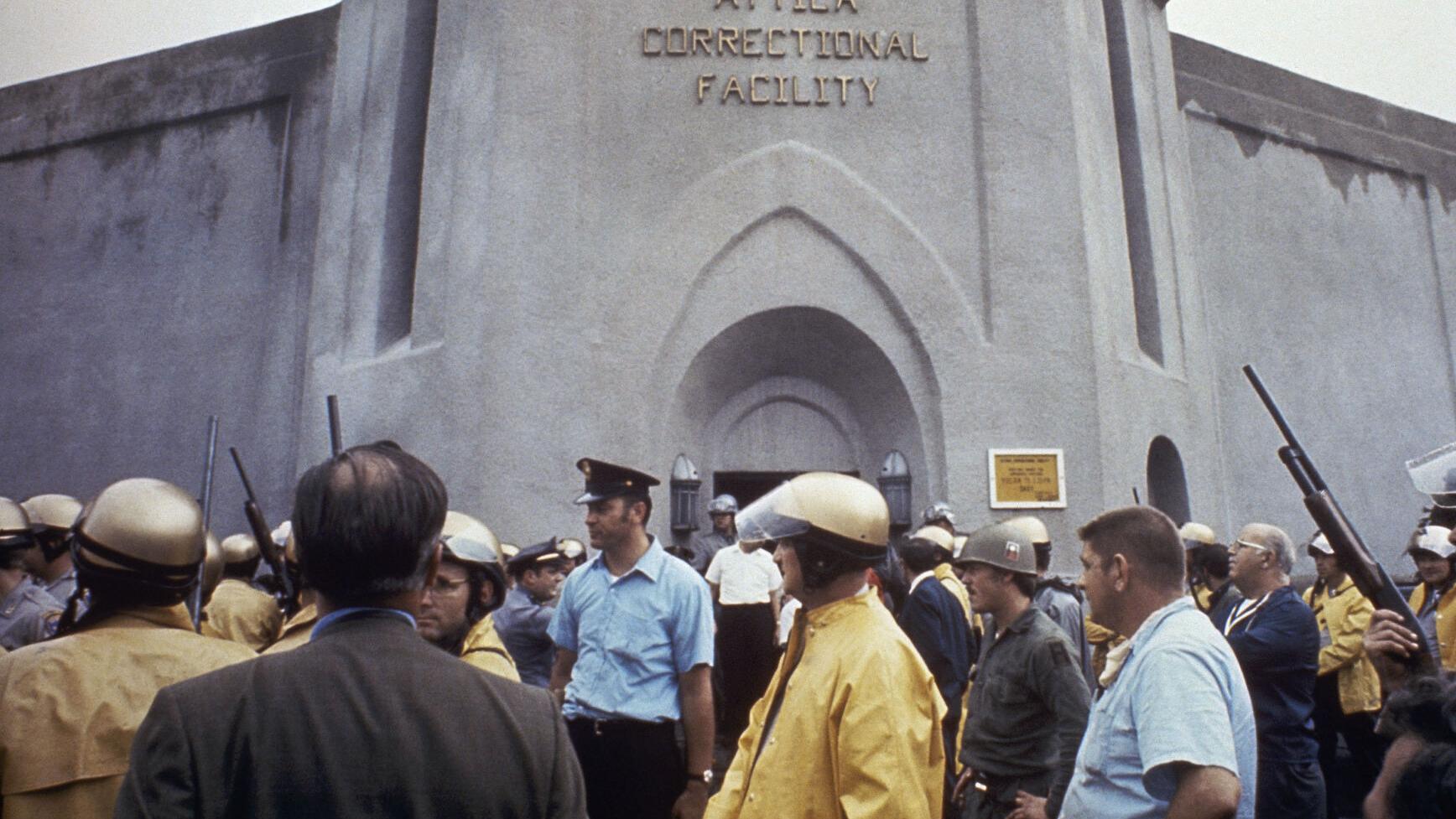Mayor Pete
(USA, 96 min.)
Dir. Jesse Moss
He’s folksy, cheery, totally straight-laced, and buoyed by a belief in Christian goodwill. No, he’s not Mr. Rogers. He’s Pete Buttigieg – the first openly gay major presidential candidate in U.S. history. The former mayor of South Bend, Indiana turned presidential contender and landmark White House secretary, Buttigieg is a man of fascinating contradictions. Director Jesse Moss (Boys State) understands that complexity. As he follows Buttigieg on the campaign, he delivers an engaging character study from the frontlines of an historic race. Although Mayor Peter might inspire a few more votes for Buttigieg in 2024, it’s by no means a PSA. This is a smart, warm, and nuanced look at what it means to be a person of difference in America.
Moss takes a cinema vérité approach to Buttigieg’s fight. The cameras are there from the early days as “Mayor Pete” announces himself an unlikely contender. Few people think that holding municipal office—in what is hardly one of America’s major metropolises—is a robust enough résumé for a bid to lead the nation. However, the film unpacks Buttigieg’s credentials that may have been lost amid the crowded primaries. He speaks confidently about the work he’s done to overhaul South Bend during his mayoralty. This record includes boosting the economy and creating jobs. They’re key credits for Presidential material, while his years of military service add all-American charm.
Pete the Underdog
Mayor Pete smartly latches onto Buttigieg’s underdog status. Moss observes how Buttigieg tapped into the cultural pulse and asserted his right to play in a heteronormative culture. From making his funny name party of his appeal—a phonetic “Boot-edge-edge” plasters his campaign headquarters’ wall—to having his husband Chasten alongside him for the campaign, the film observes how Buttigieg’s run inspired Americans not only to recognize that their nation is ready for change but that it is, in fact, slowly and steadily changing. Even if America’s pace is two steps forward and one step back, that’s still change one step at a time. That’s a giant leap in the age of Trump, really.
There are candid moments, moreover, in which Buttigieg wrestles with whether he’s the right person to embody change. He faces tough questions on the campaign trail, like why might yet another white man deserve the presidency. People question his authenticity. Rival candidates, pundits, and voters wonder how an openly gay man can follow a doctrine that challenges his right to love whom he pleases. Voters from the other side of the divide, moreover, challenge his right to exist at all. Every stop on the campaign trail inevitably invites a gaggle of right-wing Christian bigots. Buttigieg might be the squarest queer to take the spotlight, but Moss observes how he holds strong in the face of adversity. His pull-America-up-by-its-bootstraps demeanour extends to his own ups-and-downs.
Moments of Great Vulnerability
The biggest challenge to Buttigieg’s right to be the face of change comes while juggling his mayoral duties. South Bend becomes divided when white police officer Ryan O’Neil fatally shot Eric Logan, a Black man, without recording the incident on his body camera. The tensions percolating throughout America erupt on Buttigieg’s turf. He holds a town hall to address the issue. Some folks praise his effort to assume accountability amid a tragedy. Others argue that his response merely offers more platitudes that are familiarly disingenuous. Critics argue that South Bend wouldn’t be in the situation if Buttigieg applied his empathy to his policies. Mayor Pete is at its best when it observes Buttigieg’s vulnerability.
There’s another great scene in Mayor Pete that comes at the end of the campaign. It’s not the brief phone call that observes how quickly a hopeful candidate can put his dreams on hold. It’s the heartbreaking conversation that follows it. Chasten Buttigieg tells Mayor Pete that all the other candidates have their spouses at their sides when they make such significant moments in their campaigns. Buttigieg doesn’t invite Chasten to share the moment publicly even as he paraphrases his husband’s words of wisdom. Chasten, equally proud and wounded, observes the moment instead of sharing it.
Squareness and Queerness
Moss gets extraordinary access to Buttigieg, but Mayor Pete doesn’t rest on immediacy alone. As a character study, the film intuitively burrows into the tension that exists between Buttigieg’s squareness and queerness. The film asks what it means to be a gay man in America, particularly a gay white man who can easily pass as straight. Buttigieg fumbles some questions on the campaign trail, but he confronts these challenges to his identity quite well. Simply put, he owns who he is. He’s just a relatively boring man who enjoys a hot date at Dairy Queen with his husband.
Mayor Pete therefore challenges audiences to consider why they expect people to conform to stereotypes, and how one can use privileged aspects of one’s identity to help a shared struggle. Moss also lets Buttigieg’s visible frustration with such questions, as well as his ability to translate it into a positive, speak to this moment in contemporary America. Few people understand what it’s like to be a Pete Buttigieg. Few people appreciate the toll that erasing one’s own life and masking one’s identity has on a person. As the film considers the strengths of the Buttigieg’s relationship alongside the vicissitudes of the campaign, Moss observes divides both personal and political across the land. Buttigieg tries to help people understand what it’s like to walk differently through the streets of America, but Mayor Pete watches as he tries to understand the range of such experiences himself.
Mayor Pete premieres on Amazon Prime Video on November 12.














